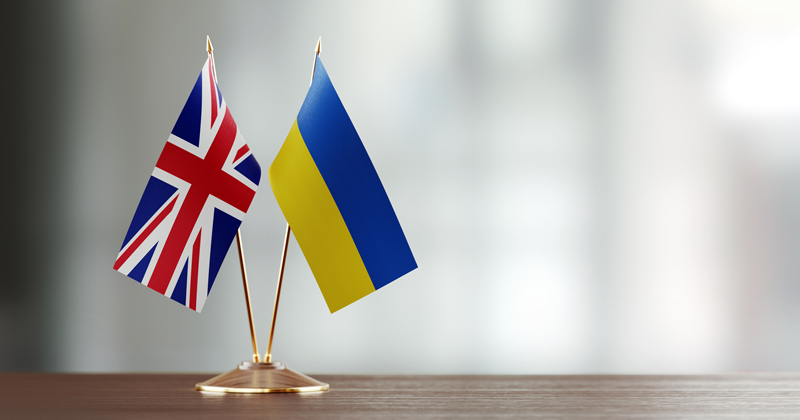Since 2022, thousands of Ukrainian children have arrived in the UK carrying not just the trauma of displacement, but also the urgent need to preserve their identity and rebuild their futures. For their sake, the nation’s generosity must now be matched by policy.
The tragic reality is that education is one of the quiet frontlines of war. At St Mary’s Ukrainian School, we see this every day. But we also see the opportunity for the UK to lead by ensuring that education policy rises to meet the needs of displaced children.
Last week, St Mary’s co-hosted a roundtable in parliament on The Future of Ukraine’s Children, alongside the Coalition for Global Prosperity and the St James’s Foreign Policy Group, chaired by Joe Powell MP.
We were joined by parliamentarians, education leaders and Ukrainian MP Lesia Vasylenko, who spoke powerfully about the risk of displaced children losing their cultural identity in exile.
The discussion reinforced what we at St Mary’s already know: the UK must act urgently if it is to safeguard both the wellbeing and the future prospects of these young people.
St Mary’s has grown from a small weekend school into an institution educating 2,500 children across 15 locations. Eighty-six percent of our teachers are themselves displaced. Together, we deliver not only lessons but also psychological support, family assistance and a sense of belonging.
This work exposes critical gaps in the UK’s education system that demand immediate policy attention.
The decisions taken in Westminster today will echo in Kyiv tomorrow
The first is the absence of a Ukrainian language GCSE. This qualification was discontinued in 1995, leaving Ukrainian students with no formal pathway to study their own language. Worse still, some children are forced to sit a Russian GCSE, an affront to those who fled Russian aggression.
A Ukrainian GCSE would safeguard cultural identity, provide fair progression opportunities and prevent the erasure of heritage. Exam boards are ready to act, but they need clear direction from government.
The second priority is embedding trauma-informed practice across the education system. Displaced children bring with them lived experiences of war, loss and upheaval. Without the right tools, teachers can feel overwhelmed and underprepared to support them.
Integrating trauma-sensitive training into teacher preparation and professional development would ensure pupils receive the care they need.
Done properly, this reform would strengthen the resilience of the entire UK education system, benefitting not only Ukrainians but any child facing adversity.
At St Mary’s, we are also planning for the long term. Our St Sophia project envisions a purpose-built, full-time bilingual school for 400 students. With government partnership, this initiative could become a model for how host countries educate displaced children and prepare them to contribute to national reconstruction once peace returns.
Around the world, there is sadly no shortage of countries affected by war and displacement, but there is little by way of best practice in education for affected children. Many would follow where Britain leads in this regard.
The nation has shown remarkable generosity in welcoming Ukrainians. Government policy must now match that generosity with concerted action.
If we fail to act, we risk raising a generation disconnected from their language, heritage and sense of self. And in doing so, we will weaken Ukraine’s future reconstruction.
The decisions taken in Westminster today will echo in Kyiv tomorrow. By reinstating the Ukrainian GCSE and embedding trauma-informed practice, the UK can give displaced children the tools not only to survive, but to thrive.
Standing with Ukraine means standing with its children. Their education is not just a humanitarian concern but an investment in the stability, resilience and recovery of a war-torn nation.
Britain has the chance to lead and it should seize it.








“a purpose-built, full-time bilingual school” seems to suggest that there’s no hope of an end to the war any time soon. It also suggests that integration isn’t a plan. I understand that it’s better for all Ukrainians who want to to return once it’s safe to do so, but for others, isn’t integration (without losing Ukrainian identity) a better goal?
Given the emphasis on creating trauma-informed environments for children, as highlighted in the article on the UK’s response to Ukrainian children, how can Michigan’s Trauma-Informed Coalitions, as discussed in this insightful piece (https://allerganresa.org/navigating-path-forward-michigan-trauma-informed-coalitions), guide us in implementing similar strategies for supporting displaced children in our schools?